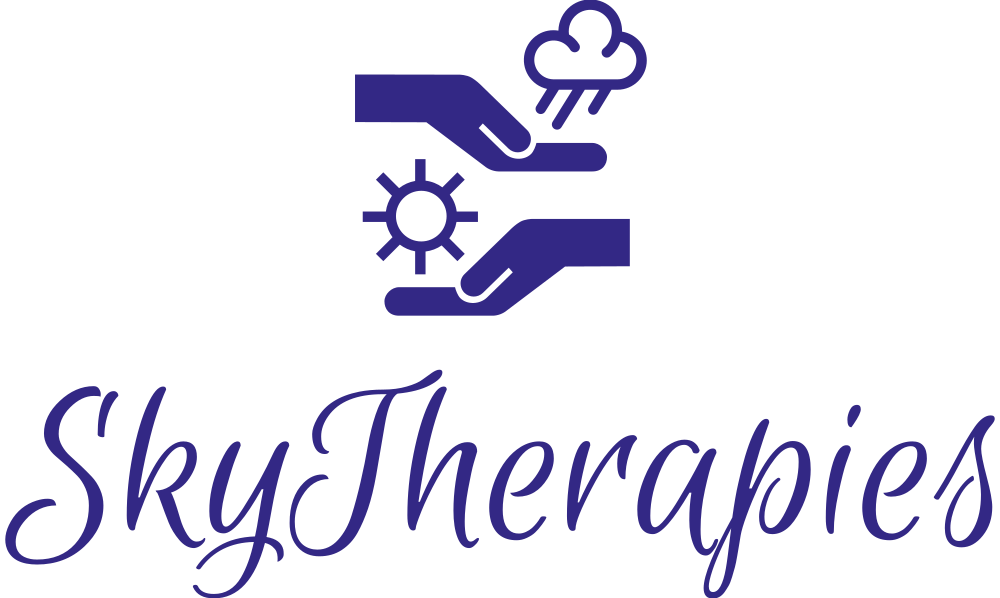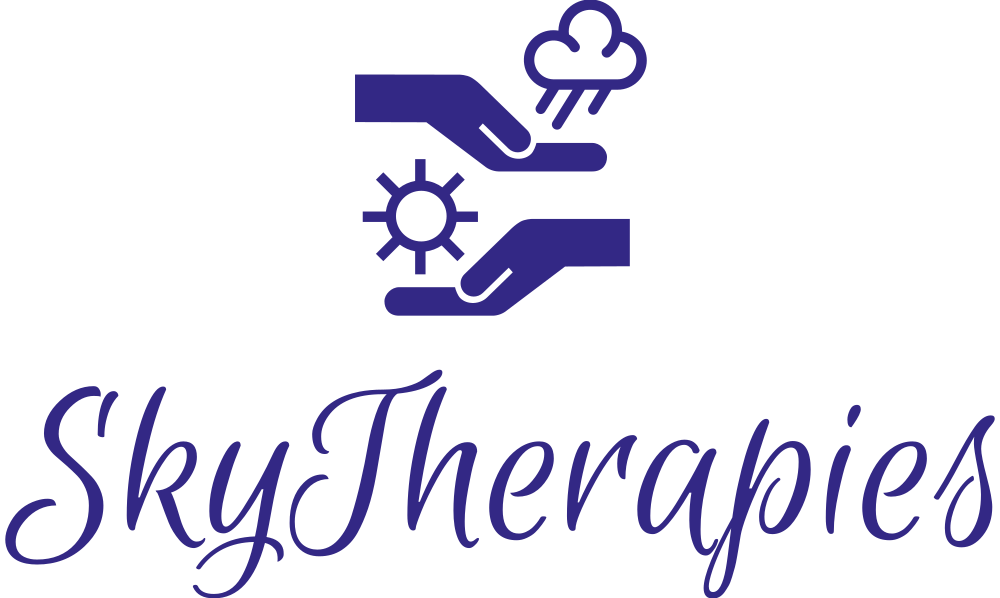Parenting a teenager is a rewarding but challenging journey, particularly when anxiety enters the picture. As parents, your instinct is to protect and support your child, especially during moments of distress. However, some well-meaning actions or habits might unintentionally reinforce your teen’s anxiety rather than help them manage it.
At Sky Therapies, we understand how deeply you care about your teen’s well-being. Let’s explore ways you might unknowingly enable anxiety, how to shift those patterns, and how you can empower your teen to navigate their world with greater confidence and resilience.
Understanding Teen Anxiety
Anxiety is one of the most common mental health challenges for teenagers. Social pressures, academic demands, and the search for identity can feel overwhelming, making them prone to anxiety. While occasional worry is normal, persistent anxiety can affect their ability to enjoy life, build relationships, and thrive.
Your role as a parent is vital in helping your teen manage anxiety in healthy ways. However, certain responses—often motivated by love—can inadvertently reinforce their fears and avoidance behaviors. Recognizing these patterns is the first step toward fostering change.
Signs You Might Be Enabling Your Teen’s Anxiety
-
Over-Accommodating Their Fears
When teens express anxiety about certain situations, it’s natural to want to shield them from discomfort. You might cancel plans, excuse them from challenging tasks, or avoid conversations that trigger their worries. While this can provide short-term relief, it may reinforce the idea that their fears are too overwhelming to face.
-
Stepping In to Solve Problems
Teens with anxiety often struggle with decision-making or tackling challenges independently. As a parent, it might feel easier to step in—helping with homework, resolving conflicts with peers, or making decisions for them. While this may alleviate immediate stress, it can prevent your teen from building the problem-solving skills they need to handle life’s challenges.
-
Avoiding Tough Conversations
Talking about anxiety or its triggers can feel uncomfortable. Some parents avoid these conversations, hoping their teen will “grow out of it” or that avoiding the topic will reduce stress. In reality, avoidance can make anxiety feel like an untouchable, unmanageable force, intensifying the fear surrounding it.
-
Unrealistic Expectations
While encouraging your teen to succeed is important, overly high expectations can exacerbate anxiety. Teens may feel pressure to meet certain academic or social milestones, leaving them fearful of failure or rejection.
-
Inconsistent Boundaries
It’s easy to let boundaries slide when your teen is overwhelmed. Allowing them to skip responsibilities or avoid consequences might feel like a kindness, but it can create a sense of instability and reinforce avoidance as a coping mechanism.
Shifting Patterns: How to Support Without Enabling
The goal isn’t to be a “perfect” parent—it’s to learn how to respond to anxiety in ways that help your teen build resilience and confidence. Here are strategies to help you foster growth while providing the support your teen needs:
-
Validate Their Feelings Without Over-Identifying.
Anxiety can feel isolating, so it’s important to let your teen know their feelings are valid. Statements like, “I can see you’re feeling nervous, and that’s okay,” can provide comfort. Avoid over-identifying with their fears by saying things like, “I’d feel the same way.” Instead, focus on reassurance and a problem-solving mindset.
-
Encourage Gradual Exposure
Avoiding anxiety triggers may feel comforting in the moment, but it reinforces fear over time. Instead, support your teen in gradually facing their fears. Start with small, manageable steps, and celebrate their efforts. For example, if they’re anxious about public speaking, encourage them to practice in front of family before presenting in class.
-
Foster Independence
Helping your teen build independence is key to managing anxiety. Encourage them to make decisions, solve problems, and take on responsibilities. If they struggle with a task, guide them through it rather than doing it for them. Over time, they’ll gain confidence in their abilities.
-
Create a Safe Space for Conversations
Open communication is vital. Let your teen know they can talk about their worries without judgment. Approach conversations with curiosity rather than solutions—ask open-ended questions like, “What’s been on your mind lately?” or “How can I support you?”
-
Set Clear and Consistent Boundaries
Boundaries provide a sense of stability, even for teens with anxiety. Clearly communicate expectations, such as attending school, completing chores, or participating in family activities. Offer understanding when they struggle, but reinforce the importance of accountability and routine.
-
Model Healthy Coping Strategies
Your teen learns from watching you. Show them how you manage stress in healthy ways, whether through exercise, relaxation techniques, or talking openly about challenges. Modeling resilience demonstrates that anxiety is manageable.
How Sky Therapies Can Help
At Sky Therapies, we deeply understand the unique struggles both you and your teen are facing. Our holistic approach is designed to provide support for the whole family, offering effective, evidence-based treatments that cater to the emotional and mental health needs of everyone involved.
-
Individual Therapy for Parents
Sometimes, as a parent, you need a safe space to process your own emotions and experiences. Our individual therapy sessions offer parents the opportunity to speak openly about their struggles without fear of judgment. This space allows you to work through your feelings of worry, guilt, or frustration and gain clarity on how to support your teen more effectively.
-
Family Therapy
Anxiety affects the whole family, and sometimes, family therapy is the best way to address the underlying dynamics. Through family therapy, you can improve communication, foster empathy, and learn strategies to create a supportive home environment that encourages your teen to face their anxiety with confidence.
-
Specialized Approaches for Teens
In addition to supporting parents, Sky Therapies provides specialized treatments for teens struggling with anxiety. Deep Brain Reorienting (DBR), EMDR, and brainspotting are powerful techniques that help teens process trauma and anxiety in a safe, supportive way. These therapies target the brain’s neural networks, allowing your teen to reframe and release unhelpful patterns of thinking and behavior.
-
Empowering Parents with Tools and Resources
We don’t just offer therapy—we empower parents with the tools they need to support their teen at home. From understanding how to respond to your teen’s anxiety in a way that fosters independence to learning coping strategies for stress management, Sky Therapies provides you with practical, actionable resources that help you create a supportive environment for your teen.
-
Ongoing Support
Navigating your teen’s anxiety is an ongoing process, and we’re here to provide continuous support. Whether it’s through regular therapy sessions, check-ins, or workshops, we offer the guidance you need to stay equipped and informed.
Building a Healthier Future Together
Supporting a teen with anxiety can be challenging, but it’s important to remember that you don’t have to do it alone. At Sky Therapies, we are committed to walking alongside both you and your teen on this journey. Our compassionate therapists are here to help you navigate the ups and downs of anxiety, fostering understanding, resilience, and growth in both you and your teen.
Together, we can break the cycle of anxiety, empowering your teen to face the world with confidence and strength—while also providing you with the tools and support you need to thrive as a parent. Reach out today to learn more about how Sky Therapies can help you and your family.





